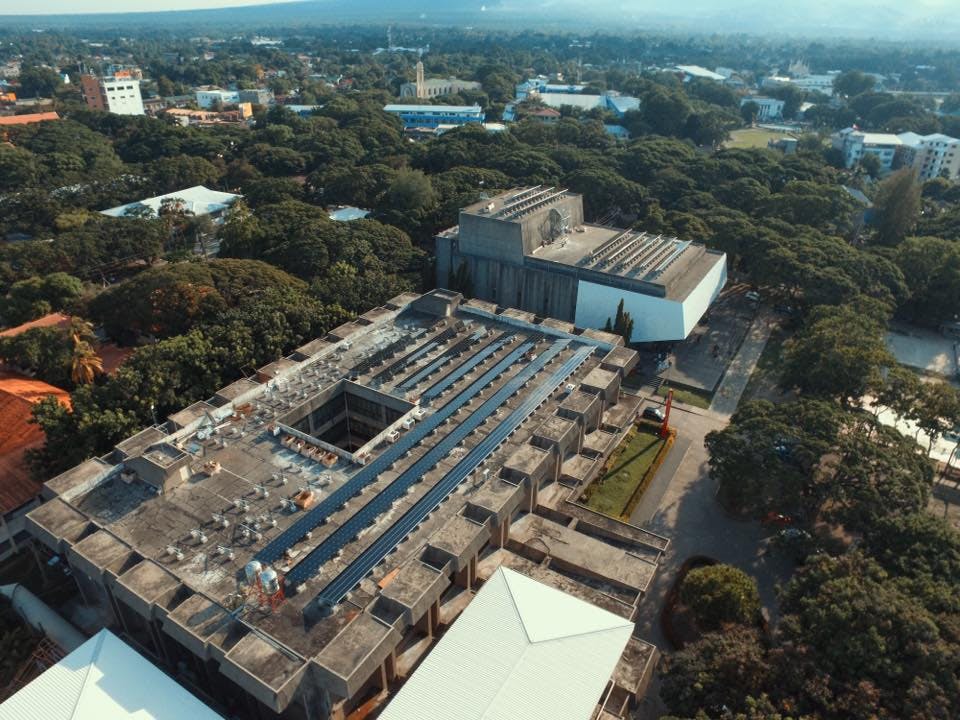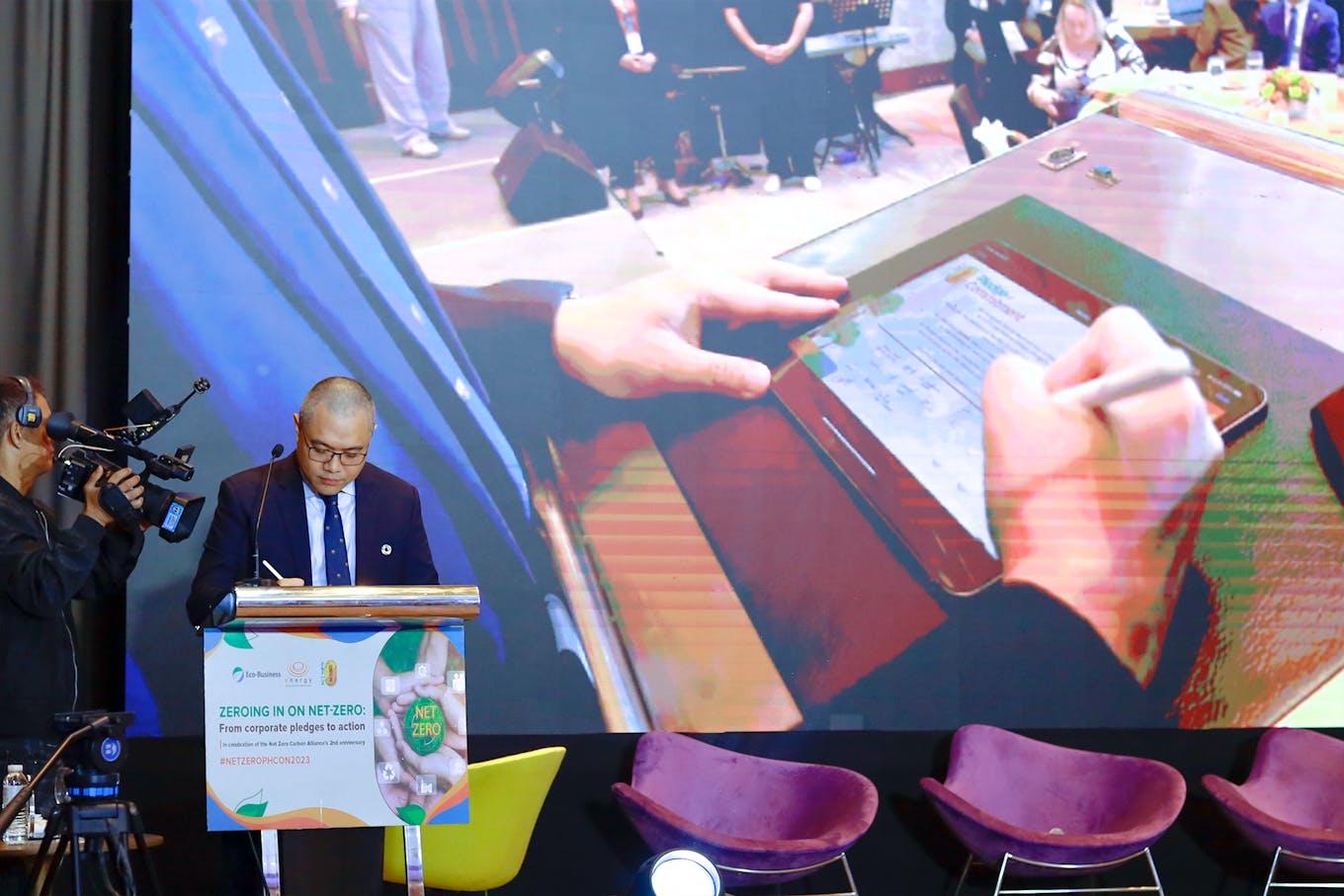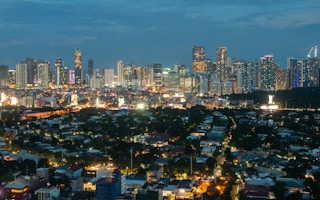Of the 10 Asean countries, the Philippines is the only nation that has yet to commit to a hard net zero target.
Brunei, Cambodia, Laos, Malaysia, Myanmar, Singapore, Thailand and Vietnam have all announced national pledges to achieve net zero greenhouse gas (GHG) emissions by 2050, aligned with the 1.5°C target set by the Intergovernmental Panel on Climate Change (IPCC). Meanwhile, Indonesia is committed to achieving net zero by 2060.
Despite the Philippines committing to peak emissions by 2030 as part of its Nationally Determined Contribution (NDC) under the Paris Agreement, a lack of a concrete net zero target, coupled with the nation’s plans to expand its installed coal capacity by at least 2.6 gigawatts (GW) by 2025, are seen as impediments.
At a conference in Manila last month, Laure Nicole Stephanie Beaufils, UK ambassador to the Republic of the Philippines and the Republic of Palau, underlined the need for stronger corporate action in the Philippines towards advancing net zero. She cited a report that showed at least one in five of the world’s 2,000 largest public companies, which represent sales of nearly US$14 trillion, now have net zero commitments.
“Intention is not enough. [In] moving from pledges to action, avoiding the very real threats of greenwashing is a must,” Beaufils added. “For commitments to be credible, we need effective plans and implementation. I would also argue that we need visibility and scrutiny.”
Co-organised by the Net Zero Carbon Alliance (NZCA) in partnership with Eco-Business, the event gathered some 200 delegates representing 70 companies in the Philippines from the construction, manufacturing, real estate and aviation sectors, among others. NZCA is a private sector-led consortium initiated by the Energy Development Corporation (EDC), the biggest vertically-integrated geothermal energy producers in the world, and one of the country’s largest renewable energy firms, that seeks to engage with Philippine corporations to achieve net zero emissions by 2050.
“Humans are unequivocally increasing greenhouse gas emissions to record levels. There is a necessity for action against the climate crisis that is staring us in the face,” highlighted Jerome Cainglet, president and chief operating officer, EDC.
The Philippines was among the five largest carbon emitters in Asean in 2020 – contributing to 11 per cent of total emissions in the region. Asean’s total GHG emissions reached 668 million tonnes of CO2e (carbon dioxide equivalent) in 2020, with coal power plants contributing 72 per cent.
“I believe achieving carbon neutrality as a transition to net zero is possible, regardless of what industry you are in,” added Cainglet, explaining that NZCA’s programmes aim to strategically develop and guide partners in coming up with their roadmap to achieve carbon neutrality through the sharing of best practices and scaling of carbon emission tracking and offsetting solutions.
In 2022 alone, the Philippines emitted approximately 146.5 million tonnes of CO2e from energy consumption – an increase from the previous year’s total of 135.8 million tonnes – with commercial and industrial operations accounting for 53 per cent of the country’s energy consumption, according to the Department of Energy (DOE).
NZCA aims to reduce its member companies’ reliance on fossil fuels and lead the nation’s shift to renewable energy.
For example, two of NZCA’s members – Silliman University in Dumaguete City, Negros Oriental and Knowles Electronics in Cebu City – began running their operations on entirely renewable energy in the last four years. According to power equipment supply company First Gen Energy Solutions, Silliman University prevents at least 974.5 tonnes of carbon dioxide emissions annually by leveraging geothermal energy.

Silliman University, one of NZCA’s members, prevents at least 974.5 tonnes of carbon dioxide emissions annually by leveraging geothermal energy. The university also generates electricity through the use of solar panels, which are pictured here. (Photo by Kenzo Laxina from X)
Eight of NZCA’s partner firms reported reducing their carbon emissions through decarbonisation programmes from 2021 to 2022 – accounting for a 9 per cent cut in emissions in one year, according to data NZCA captured in 2023. Fifty-nine per cent of NZCA’s members’ energy requirements are now met with renewable energy from EDC and other clean energy resources.
“As our number [of NZCA members] increases, we have the chance to significantly change the path we are currently on,” Cainglet underscored. “About 10 years ago, measuring our Scopes 1 and 2 emissions was viewed as unnecessary and unfeasible – let alone requiring our suppliers and contractors to do the same. Many businesses are now aware of the need to step up their decarbonisation programmes and now also track Scope 3 emissions.”
“
I believe achieving carbon neutrality as a transition to net zero is possible, regardless of what industry you are in.
Jerome Cainglet, president and chief operating officer, EDC.
Coal problem
The Philippines’ heavy reliance on coal-fired energy generation and dependence on external funding to support such projects is, however, hindering its decarbonisation efforts, according to a report by S&P Global.
Despite a government policy to halt applications to build coal-fired power plants in 2020, the Philippines’ installed coal capacity still grew by nearly 14 per cent in the span of two years to 12,428 megawatts (MW) in 2022, according to data from the Department of Energy.
The Philippines’ largest banks have still funnelled some US$867 million into fossil fuel financing post-2020, in spite of a moratorium that excluded coal projects already in the pipeline. Coal still accounts for 44 per cent of the country’s energy mix, while only 29 per cent of the installed capacity is comprised of renewable energy sources.
While the nation aims to increase the share of renewable energy in its power generation mix to 35 per cent by 2030 and 50 per cent by 2050 under the Philippines’ National Renewable Energy Programme, a total of 52,826 MW of additional capacity is needed by 2040 – more than six times the current capacity.
Renewable potential
The Philippines must leverage its renewable energy potential to reduce its reliance on fossil fuels imports, said Francis Giles Puno, vice chairman and chief executive officer of EDC. “When you look at the Philippine grid today, we probably have more renewable energy potential simply because our country doesn’t have a lot of indigenous fossil fuels. [Some] 90 per cent of our coal supply is imported fuels,” explained Puno during the opening plenary, which discussed “the state of net-zero corporate pledges in the Philippines.”
Southeast Asia remains a major fossil fuel importer, with the Philippines and Thailand accounting for 40 per cent of the total combined oil imports in the region in 2020.
“
Climate action is a matter of urgency as we continue to experience the ever-increasing impacts of our warming planet. NZCA aims to contribute practical measures toward decarbonisation that Philippine businesses can take, starting with interventions such as renewable energy.
Allan Barcena, executive director, Net Zero Carbon Alliance, and assistant vice president and head of corporate relations and communications, Energy Development Corporation
The Philippines plans to install an additional 0.76 GW of wind and 18.5 GW of solar power capacity by 2030, as established in the Philippines Energy Plan (2020-2040), with the country aiming for solar and wind power to account for 16.5 per cent of its total projected energy generation in 2030 and meet 38 per cent of the nation’s demand increase in the coming decade.
Solar power may see exponential growth at an average annual growth rate of 22 per cent until 2030 across five key Asian economies, including the Philippines. While solar energy only accounted for 1.7 per cent of the Philippines’ electricity in the first six months of 2022, an estimated US$78 million of potential fossil fuel costs were avoided.
A matter of survival
Agnes De Jesus, chief sustainability officer of First Philippine Holdings Corporation, EDC’s parent company, noted how businesses must be held accountable in the nation’s journey towards net zero.
Because many businesses rely on the natural world and environment, the onus is on every company and individual to assume responsibility or bear the consequences, De Jesus emphasised. “For survival, we need the environment. Businesses need the environment for raw materials, physical protection, and business continuity,” De Jesus said, noting how climate-induced extreme weather continues to threaten businesses. “We’ve experienced damage to facilities and even difficulty accessing our worksites due to [more frequent] floods, typhoons [and other natural disasters].”
In 2020 alone, super typhoon Goni wrought some US$56.3 million in infrastructure damage to the power sector of 25 provinces across the country, according to the National Disaster Risk Reduction and Management Council.

Building material company CEMEX Philippines and nine other companies pledged commitment to net-zero at the NZCA’s second anniversary conference. Photo: Energy Development Corporation
According to a report by global energy think tank Ember, of the Philippines’ electricity demand rise from 2015 to 2021, only 12 per cent was met with clean electricity, while electricity from coal generation met 85 per cent of the demand.
“There’s a positive story here. It’s great to see so many [partners] in the room now [at this NZCA conference] being able to share each other’s experiences and go from strength to strength to achieve net zero,” highlighted Karen Ferguson, head of climate, science and tech at the British Embassy Manila, who spoke during the conference’s opening plenary.
“Movements like NZCA can guide [companies] – whatever their level of readiness [for decarbonisation may be]. No one company can embark on this journey alone; it takes a group of like-minded companies and individuals. This is why alliances like NZCA are necessary,” said EDC’s Cainglet.
“Climate action is a matter of urgency as we continue to experience the ever-increasing impacts of our warming planet. NZCA aims to contribute practical measures toward decarbonisation that Philippine businesses can take, starting with interventions such as renewable energy,” concluded Allan Barcena, executive director of the NZCA and assistant vice president and head of corporate relations and communications, EDC.


















